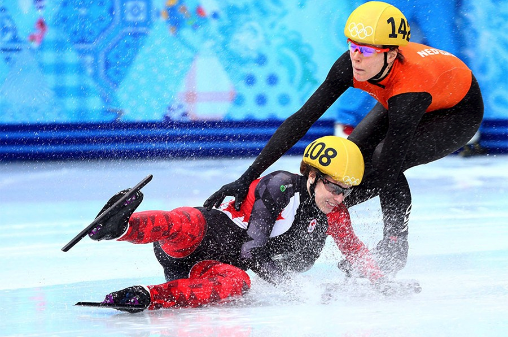Imagine two Olympians who are equally trained, equally fit, equally talented. Is there a way to tell which athlete will win, and which athlete will choke?
Vikram Chib, an assistant professor of biomedical engineering at Johns Hopkins, says that if he could compare their brain scans, he’d have a good idea about which one is most likely to choke under pressure during the games: it’s whoever is most excited about winning gold, and all the pride, glory, and potential cash that comes with it.
Chib studies how incentives motivate performance. He’s found that when people play for high stakes, those likely to choke have wild swings of activity in an area deep in the brain that encodes value. In these people, the bigger the incentive, the more the area lights up. But once they start the activity where money is on the line, that activity plummets, the same way it would when someone thinks about losing. That neural deactivation can affect the player’s motor skills—and they choke.

